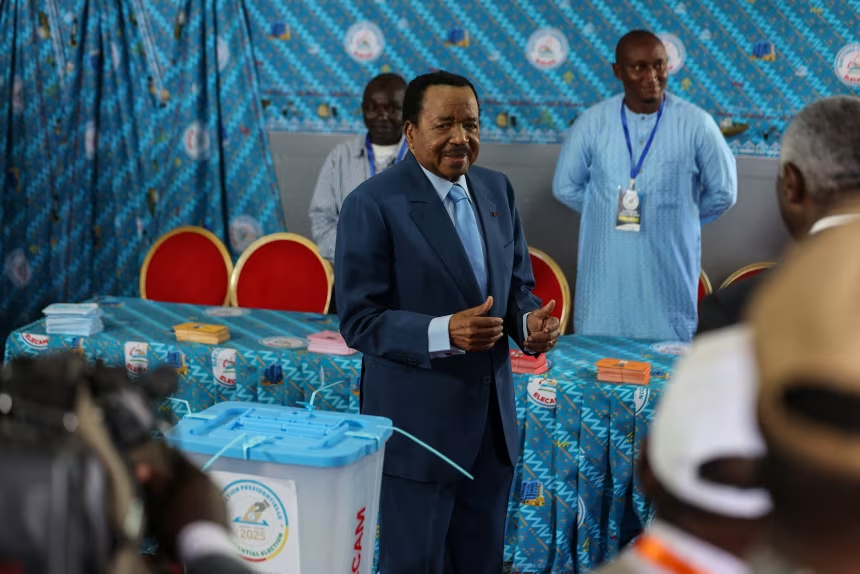Cameroon has cast its votes in a high stakes presidential election as 92 year old President Paul Biya seeks yet another term after decades in power. Many observers see this election as less a contest and more a reaffirmation of decades of entrenched authority, though signs of public desire for change have grown stronger.
Since assuming office in 1982, Biya has steadily consolidated power—removing term limits, controlling state apparatus, and maintaining a tight grip over political institutions. His reign, spanning more than four decades, has witnessed eras of both stability and stagnation, with persistent challenges in economic growth, regional unrest, and youth disillusionment. With his advanced age and limited public presence, questions about his health and capacity to govern are frequent, yet they have never fully undermined his political dominance.
On the ballot were multiple opposition candidates, some former insiders turned critics. None, however, have managed to coalesce into a unified force capable of decisively challenging the incumbent. Among them, former minister Issa Tchiroma Bakary garnered attention for positioning himself as a voice for renewal. Still, the fragmentation of the opposition seems to play into Biya’s favor—a phenomenon long observed in countries with long ruling leaders.
Voting occurred under tight security, particularly in regions where conflict or separatist tensions have worsened. In the western Anglophone zones, long-running grievances continue to fuel instability, while in the Far North, attacks by extremist groups add to citizens’ anxieties. Infrastructure deficits, unemployment, and rising living costs weigh heavily on many Cameroonians, especially the young, many of whom were born under Biya’s regime and see this election as an opportunity for symbolic change.
If declared the winner, Biya would extend his rule well into his nineties, cementing his legacy as the longest continuous nonroyal head of state in power today. For many critics and youth activists, the election is already a referendum on longevity over renewal, on governance by complacency over progress, and on whether the institutions built over decades truly reflect the will of the people.


